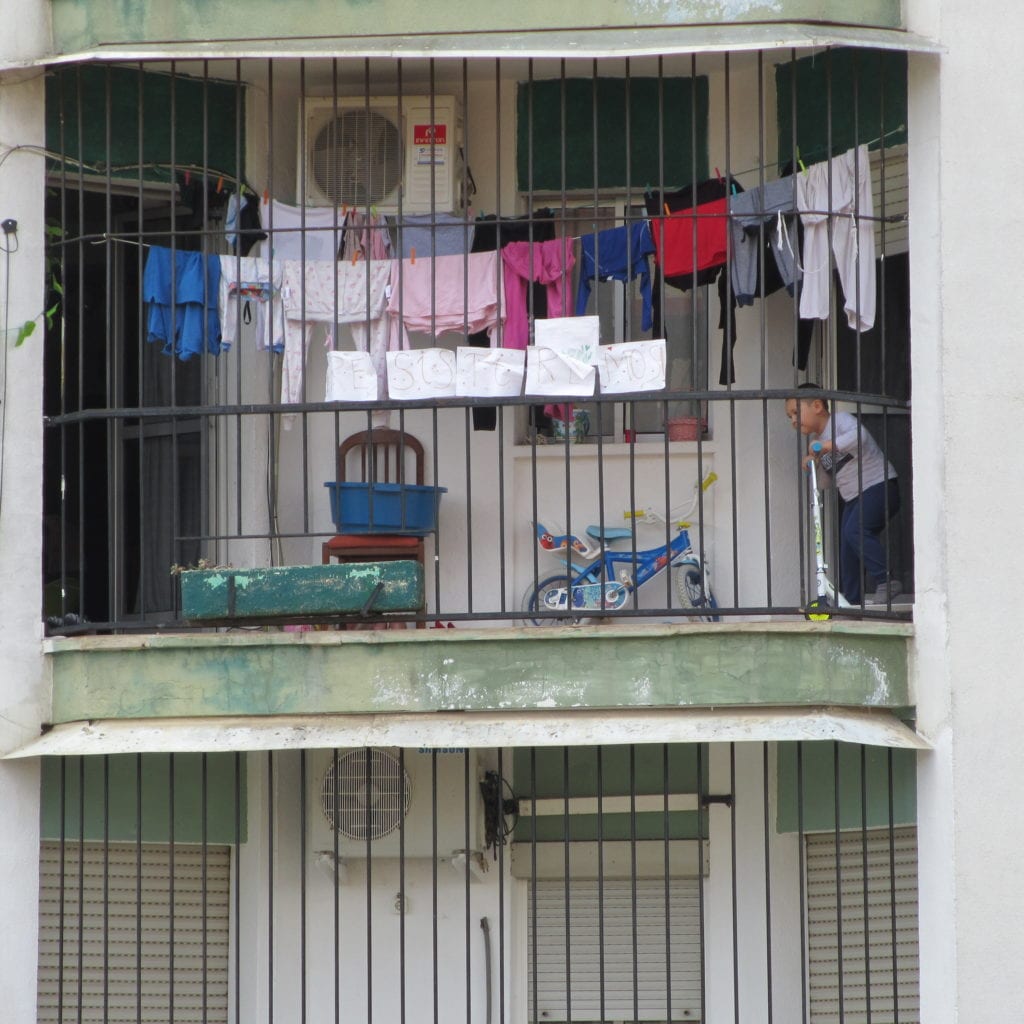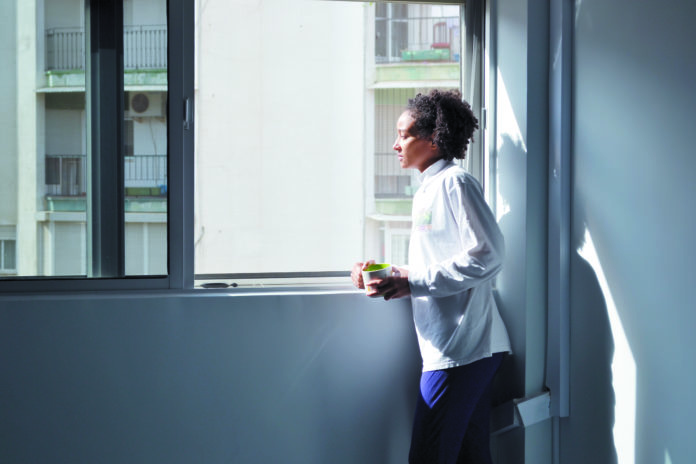by Ayan Ajanaku —
SEVILLE, Spain – I moved from Memphis to Spain in 2012. I’ve stayed because I like it. Now, like many people throughout the world, I can’t freely go to any of the places I love to visit. Spain is on lockdown, under siege by the coronavirus.
Worldwide, 107,000 deaths attributable to COVID-19 had been recorded by April 11 amongst 1.7 million confirmed cases, which included 396,000 recovered patients. April 11 also is the day the US total of 20,071 deaths pushed to the most in the world.
The US already had the most confirmed cases (518,000 as of April 11). Spain, with more infections (163,027) than any other country in Europe, reported 16,606 deaths and 59,109 recovered patients, also noting that its death rate had slowed.
The lockdown continues. Police patrol the neighborhoods. If you’re out after 7 p.m. (when things are ordered closed) or generally out looking like your loitering (and not grocery shopping), they will stop and question you. Not following the basic restrictions means fines that range from about $700 to $35,000, with more severe violations carrying fines in the hundreds of thousands.
Highways leaving out of cities are barricaded; you have to stop and explain to the police why you’re leaving.
I came to Spain to learn Spanish and to see Europe. I spent my first year in Madrid, the last seven years here in Seville. For four years, I helped teach English in public schools. Later, I transitioned to teaching English in academies. Now I teach English exclusively online.
After eight years of living in Spain I’m a bit better at really being where I am. Admittedly, when I’m annoyed about a process or outcome, I immediately start fantasizing about how things used to work when I lived in the US. As the late Bill Withers said, “Memories take you back to the good times when it’s over and the sad times disappear.”
I accept that my memories are just a kind of virtual reality; I don’t get too attached to them. That’s the position from which I look, indiscriminately, at the facts about the two cultures (in Spain and the US) and maintain my sanity during this COVID-19 pandemic.
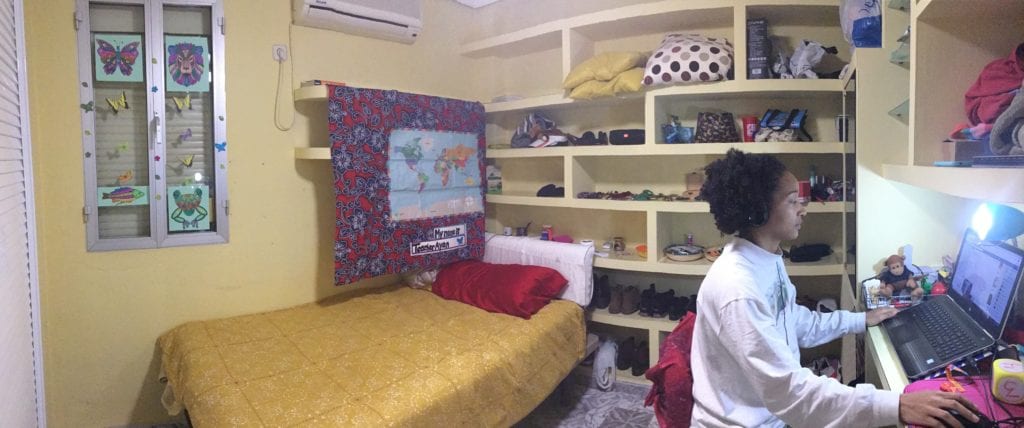
“Why has life not all but stopped there, like it has here?”
Facts: humans are substantively the same. Cultures are shaped by differing histories, which ultimately cause each country to have unique tendencies that must be examined, constantly, to foster and nurture growth.
My observation is that in the US the strongest narratives have themes of civil liberties and the pursuit of happiness. In Spain, the essence of a pervasive narrative is that we’re stronger, safer and better when we live together, fostering a more communal spirit.
These generalizations aren’t applicable across the board to every success and social problem, but they can generally help you to understand and perhaps accept why certain hurdles are more difficult or easier than others.
Case in point: When the state of alarm came out about a month ago in Spain to shut down the whole country, I saw Spain quickly moving into the lockdown stage while the US was lagging behind. My mind started to do what I always do – compare.
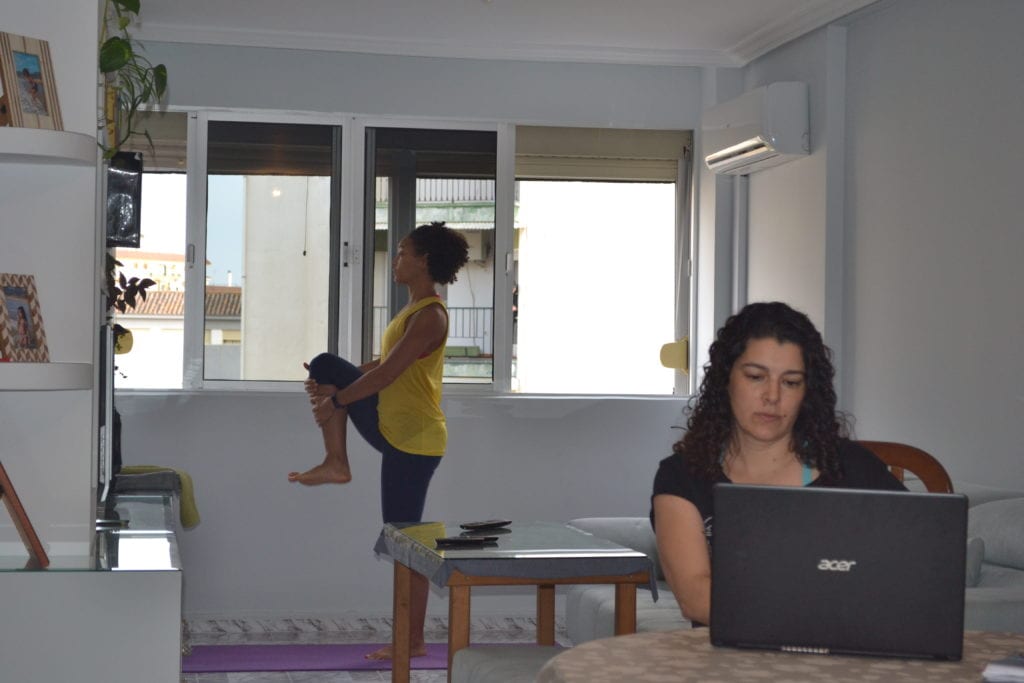
I live in an 800-sq.-ft. apartment (no access to outdoor space) with my roommate, who has two kids that she has custody of half of the month.
Read the restrictions that me and most other citizens have been living under for the last month (and now just extended for another three weeks):
- If you’re found going anywhere that isn’t the supermarket or a pharmacy, or if it even looks like a frivolous trip to the grocery store, you can get a ticket between 1300-15000 euros. Here in Seville, a woman was fined last week for a disputed trip to the store for essentials. She claimed the store didn’t have the diapers she needed, so she settled for candy. Authorities were not persuaded.
- We can’t leave our apartments for exercise, walks. Parks are closed in addition to all non-essential businesses.
- Not more than one person can be in a car.
- You can’t walk your dog more than 50 meters from your home and you must do so alone.
“Meanwhile, on the same day the state of emergency was declared in Spain (March 14), my parents and Generation X sister are going on road trips.
And recently, in the midst of what now is widely accepted as a health crisis, one of my siblings in the US was getting together with a friend at her home for Sunday brunch.
I’m thinking, “What is that really about? Is it governmental policy, a cultural issue, ignorance or all of the above?”
Why has life not all but stopped there, like it has here?
My family isn’t an anomaly. Gun shops and churches are still open in many states. Wisconsin held an election with people lined up at the polls. And while gyms and most non-essential businesses are closed in the US, there are too few restrictions against outdoor activities in far too many places. A friend in Michigan said while running last week she passed a basketball court with several guys playing.
What happens when culture collides with a virus?
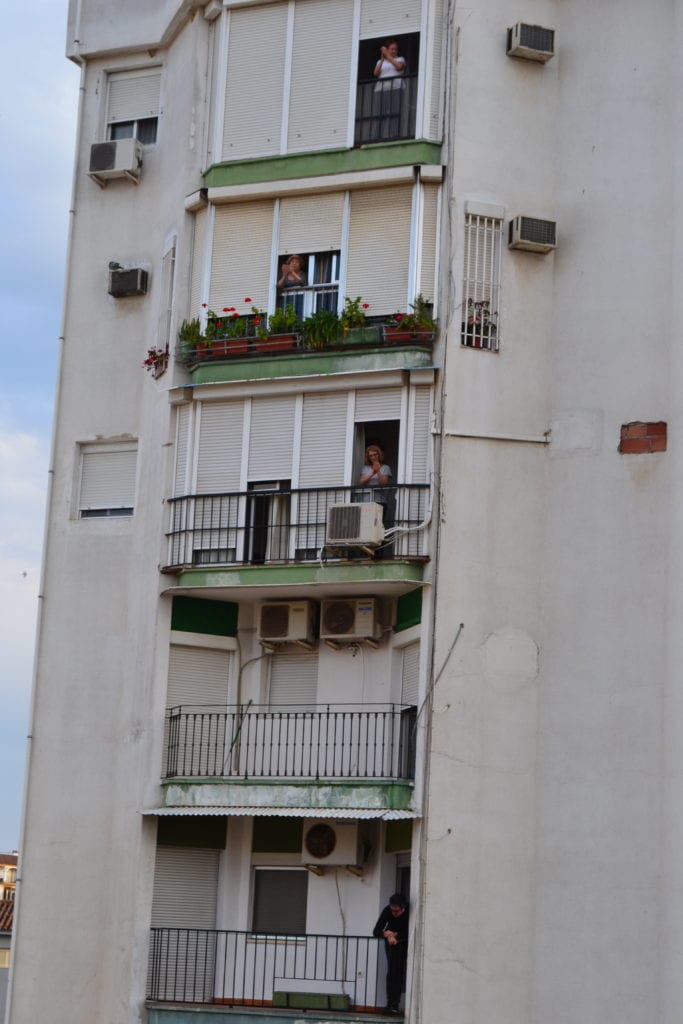
Democracy is a relatively new concept in Spain, only dating back to the late 70’s. Before that the country was ruled by dictatorship. While the idea of civil liberties is an important concept here, there’s no obsession. The thought of those liberties somehow overriding the community duty to keep everyone safe during a viral pandemic is unthinkable.
Instead there is this sort of understanding – solidarity – that it is right for the government to be empowered to make the swift changes needed to keep everyone safe. Yes, there were/are factions that continue to say that the “cure could be worse than the illness” from an economic perspective. That thought probably sounds familiar to many Americans.
In the US, priorities are much different. Personal liberties in most cases seem to trump everything else. Say and do what you want at all costs. Because if you can’t, then how could anyone be considered free?
But what happens when that culture collides with a virus?
The answer is, you get a slow response.
It’s the government’s fault you say? Well, we elected government officials. The government tends to act in a way that it feels its constituency will accept. In a capitalist country with a booming economy, a president risks all if she/he comes out of the gate saying shut everything down immediately before there has been a “significant” death toll.
Under such circumstances, the only thing that country could do is wait for people to die before making any significant changes. Or is it?
Understandably, shutting down countries too soon or too late could prove costly. And the decision must be made as folks at multiple turns are spouting statistics and making judgements in the midst of a global pandemic that is only four months old and unprecedented in the modern age.
Across the journalism spectrum, criticism is a constant theme, regardless of the country. Some of it is locked onto the fear that we might spend too much money in pursuit of making sure no life gets left behind.
Is that a sensible fear though? Do people really understand that such judgement paralyzes governments when it needs to act?
Paralysis in most cases is worse than moving in the wrong direction.
Perhaps one of the lessons learned from this pandemic will be how to empower our elected officials to truly guide and not be fearful of making the most conservative decisions necessary to protect life.
